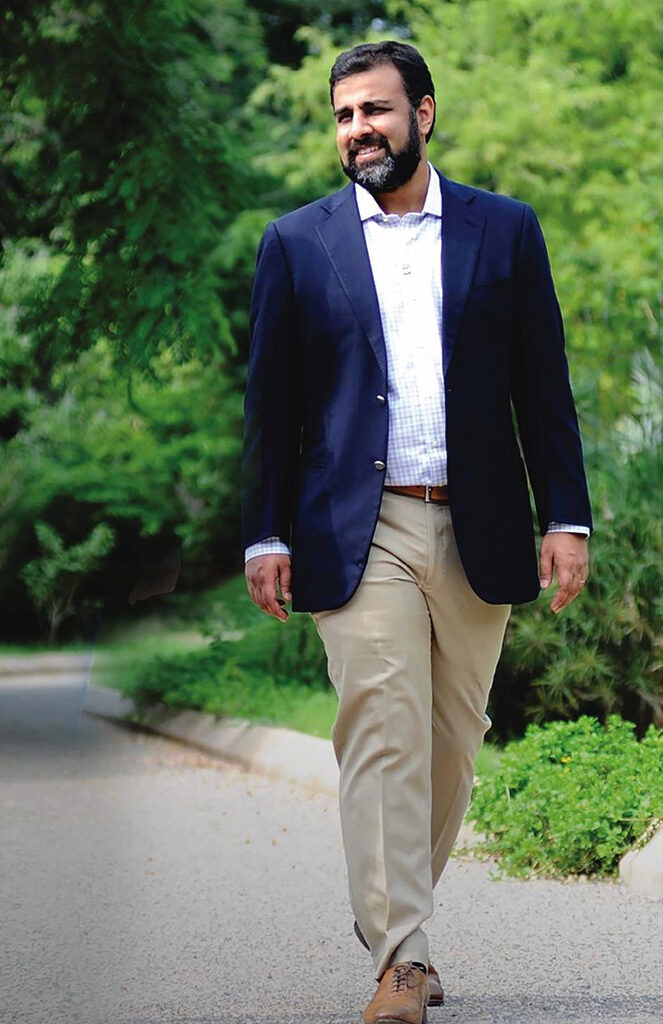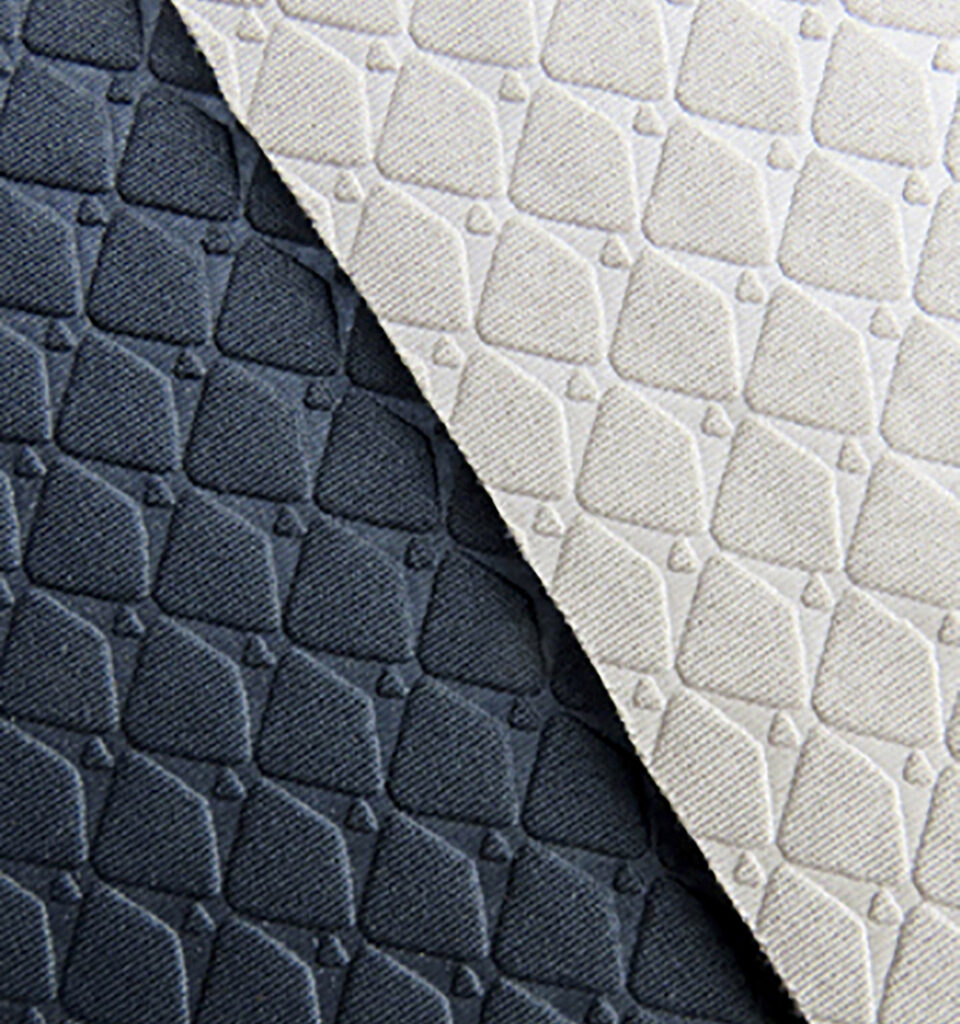
The technical textile industry is estimated to be upwards of USD 100 billion industry, globally. In India, it has been growing at a rate of 4% to 5%. With a diverse set of applications and very high potential for innovation, the growth of this segment will continue, opines Punit Lalbhai, Director, Arvind Group. He spoke recently at the AGM of ITTA on the group’s presence in the technical textile segment.
Technical textile has emerged as a ‘sunrise sector’ to watch out for in India in recent times. With the government pushing forward policy initiatives to add momentum to the sector’s growth, things that are unfolding in India are being keenly watched by leading players in the field across the globe. One first mover in the sector is a name that needs no introduction to the textile industry fraternity. Arvind Limited, the country’s biggest textile conglomerate, has carved a niche in this sector in a relatively short span of time. The group has an exclusive division – Advanced Materials Division (AMD) – with focus on three businesses, namely, human protection, industrials and advanced composites, all of which are witnessing strong growth.
AMD has continued its momentum and delivered strong performance in FY 2020. This business grew its top-line from Rs 486 crore in FY18 to Rs 630 crore in FY19, and despite the March-end disruptions, ended the year at Rs 713 crore, clearly reflecting continued growth momentum.
The division has built state-of-the-art facilities for all its businesses. AMD operates more than 10 facilities spread across Gujarat. The facilities are vertically integrated, with most cases providing stringently controlled and quality-oriented manufacturing. The facilities boast of best-in-class equipment, along with inspection, testing and product development setup.

Punit Lalbhai, Director, Arvind Limited, who heads AMD, has been one of the key driving forces behind the impressive growth achieved by the division. He is excited by the happenings in the field of technical textiles and feels that the textile industry as a whole has got a responsibility to take this sector forward. “The technical textile space has generated a lot of interest. It is estimated to be upwards of USD 100 billion industry, globally. In India, it has been growing at a rate of 4% to 5%. With a diverse set of applications and very high potential for innovation, the growth of this segment will continue,” he says. But there are challenges too, as he points out, which include fragmented markets, not well-developed application space, public machinery not geared up, lack of standards, etc.
Lalbhai feels that a collective effort of the players in the textile industry is needed for boosting growth in the sector. “Very few industries have this opportunity to orchestrate what an entire sector will look like. With technical textiles we have just that. There are things that we need to deal with such as absence of strict quality controls, buyers not being educated enough in terms of evaluating value of the products, lack of standards, etc., Yes, there are many impediments. However, we should not lose focus of the opportunities,” he adds. “This opportunity comes with a responsibility. All of us in the industry need to collectively work towards overcoming these challenges. There is a robust global market waiting for us. There is a huge amount of upside for us in India,” he adds.
Arvind AMD Growth Story

Punit Lalbhai highlights the fact that a lot of hard work has gone into making the AMD reach where it is today. “While we are happy about where we are right now, it was not an easy task to scale up. The initial years were very difficult. It took us four years to reach from zero to Rs 100 crore. It took us the next four years to reach from Rs 100 crore to nearly Rs 1,000 crore. It is because of the hard yards that we put in the first four years that we could reap the benefits in the second four years,” he reveals. “This is an aspect that I want to share with other entrepreneurs. Conceiving a business is one thing. Staying power and persistence are the key to sustaining growth,” he adds.
Listing down one of the key factors for the group’s success in the field of technical textiles, Lalbhai mentions: “It is not about having the technology or being in the right business. It is something more fundamental than that. We have tried to build the business on ‘trust’. We have tried to make the customer trust the service we provide. They completely trust us to approach their problem in the right away and give them a solution.”
Commitment to Quality

“The second key factor behind our growth is the focus on quality. The foundation of trust is quality. Yes, price is an important factor for buyers but we make sure that there is no compromise when it comes to quality. We have the best quality control measures, best raw materials, state-of-the-art equipment, etc. The intention is to have all the factors that influence quality to be taken care of in the right manner,” Lalbhai states. The third key factor for the technical textile division of Arvind Group maintaining its strong growth has been its focus on people.
“As is the case with any other business, people are the key for this business too. However, in this field I feel that readymade talent is not available. So, you have to develop talent. It is about investing in talent and not about looking for readymade professionals to hire. We look for new talent – talent that is fresh, talent that does not carry baggage, talent that is enthusiastic. We hire talent based more on their attitude. Yes, I admit that technical knowledge is important in this line but having the right attitude is also important. Today we have many who have joined us fresher engineers or management trainees and are now heading some of our businesses,” he says.
Fruitful Partnerships
According to Punit Lalbhai, having the right partnerships has been another key driving force for the company’s growth in this field. “We have done a lot of collaborations as a group. We have global leaders as our partners, who have added a lot of value with their knowledge and helped us gear up to the higher levels.” A good example of such a partnership is the AMD joint venture with the Preiss Daimler Group, Germany to produce world-class glass fibre woven and nonwoven products. Similarly, Arvind OG Nonwovens (P) Ltd. is a joint venture between Arvind Ltd. and OG Corporation of Japan. The JV will manufacture high-quality nonwoven fabrics using needle-punch technology for bag house filtration, artificial leather and a variety of other applications.
Adient Arvind, which is an automotive seat fabric manufacturing venture, is another example of such a beneficial partnership. Lalbhai points out that the ability to attract the right partnerships is also vital. “While having the scale and financial capability is always good and offers an advantage, I feel that in order to strike many of the partnerships, there are other decisive factors. These include factors that I was mentioning earlier such as our focus on trust and quality. These are things that are applicable to an industry of any size,” he says.
Leader in PPE
The division’s human protection business manufactures a range of specialised clothing and accessories that protect personnel in steel, oil and gas, fire-fighting, rail and road construction, healthcare, defence and security sectors, emanating from the harsh operating environments that their jobs require. Arvind AMD operates multiple facilities across Ahmedabad, Bengaluru and Ethiopia for garments catering to human protection solutions. It has capabilities to provide unique and special finishes as per the application of the product. AMD works with globally renowned chemical suppliers to provide the best-in-class and durable finishes such as Proban®, anti-microbial, OWR, etc.

Arvind Ltd. is also considered a leader in manufacturing personal protective equipment (PPE). It manufactures PPE suited for different application such as fire protection, healthcare, defence and industries such as oil and gas, metals and mining, municipalities and medical. The company is a vertically integrated player in PPEs with capabilities across the value chain. It has been making PPEs in its facilities located in Bengaluru, Ranchi and Ahmedabad in India and in Ethiopia. Since the spread of the corona virus, Arvind has been closely working with the government to re-pivot many of its facilities towards PPEs to support the nation in its fight against the pandemic. It started with manufacturing protective coveralls and bio-suits and then fabric masks and half face respirators.
Filtration Solutions
Arvind AMD provides air and wet filtration solutions to OEMs, converters and end-customers all around the world. Arvind’s commitment to sustainability drives it in providing high-quality pollution control solutions for critical applications. Within air filtration, the business manufactures non-woven needle-punched filter media using a variety of fibres – PET, PP, aramids, PPS, etc.
Advanced Composites
Arvind AMD is a vertically integrated player in composites – from manufacturing of glass fabrics to providing end-to-end composite solutions. It started its composites journey in 2012 through a joint venture with Preiss Daimler Group, Germany. The joint venture – Arvind PD Composites – is engaged in manufacturing glass fabrics for wind energy, CIPP, marine and other industrial applications. Arvind forward integrated and started end product composites in 2014 and now has a capacity of 1,000 tonnes per month – highest in India. It offers a full range of solutions for multiple segments like building and construction, industrial, mass transport, wind energy, sports and water infrastructure.
Optimistic Outlook
So what would be Punit Lalbhai’s advice to entrepreneurs who are looking to step into this domain? Responding to this question, he observes: “Firstly, you need to look at time very differently. Look at value creation horizons very differently. I think it is an Indian trait to be impatient. This trait has helped us succeed in some other industries. But in the case of technical textiles, there are no short-cuts and honouring the time factor from the beginning is important.” Speaking from group’s experience, Lalbhai points out, “Many a time we have found ourselves investing either too much or too quickly and then struggling for a long time. Whereas, we could have done the same thing and landed up at the same point in the same time horizon.”
“We could have utilised the resources much better. Taking pride in doing something smaller than what one would like and doing it extremely well so that the foundation is strong , so that the next phase of growth is that much more sustainable, is important. Looking at time as an input when starting the thought process around building the journey is extremely important,” he adds. Lalbhai is excited about the prospects for the technical textile industry in the country. Listing out the key things that need to be done, he says, “We need to focus on changing the environment. There are standards to be written. There are qualification norms to be put in place. Procurement systems need to get changed. There are a lot of dots to be connected.”
“An entire ecosystem needs to be developed. Technical textiles also need raw materials. Consumer education has to be done. We all need to strive towards changing the environment to reach the potential,” he adds. He admits to being happy with the push being given to the sector by the government. “The government has shown the right intent. It has shown great energy. If that continues and with the kind of people who have already achieved some success in this field, I am very confident that the next 20 years will be an exciting period for the industry,” Lalbhai states.





